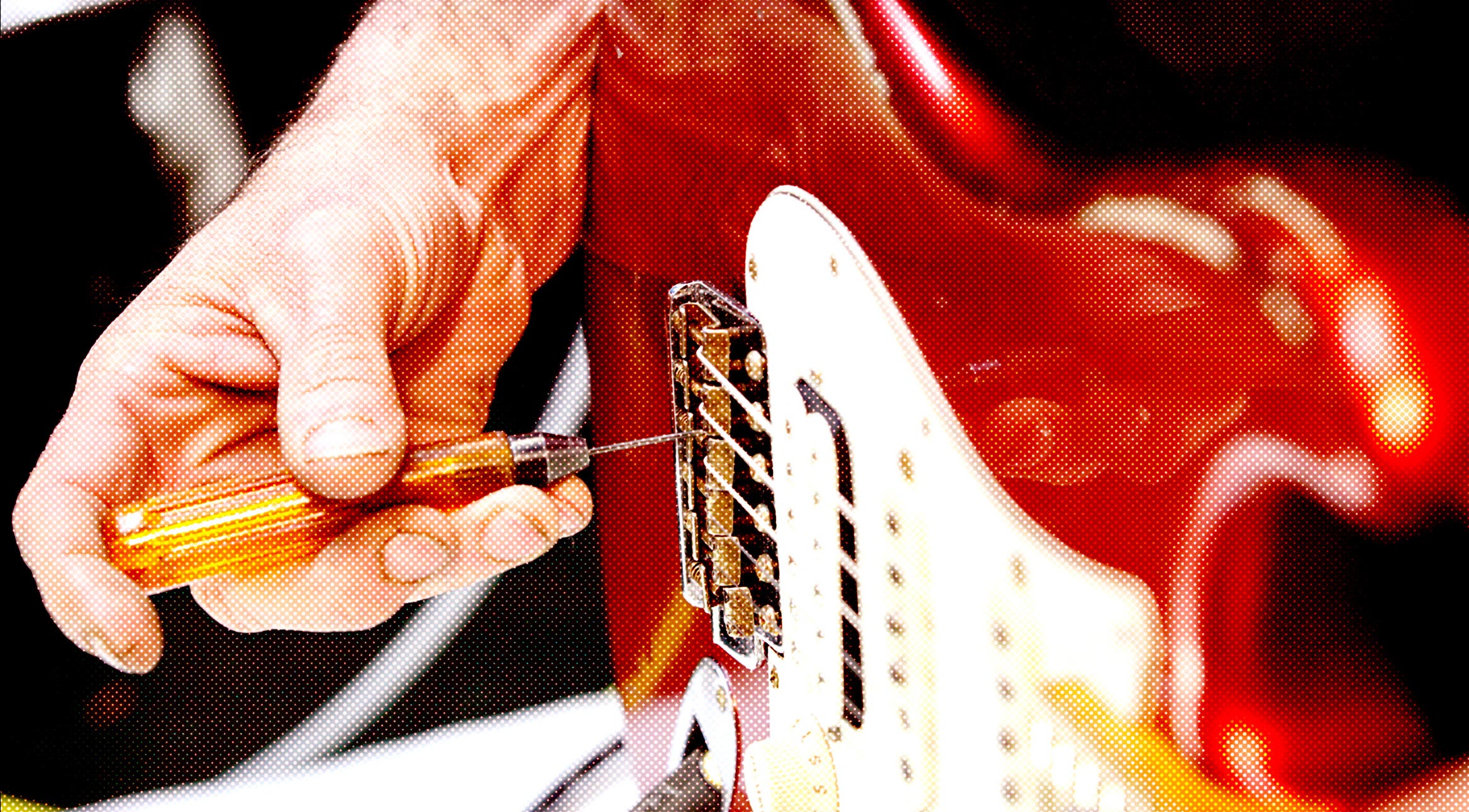
Sections
So, you've just laid down some cash on a new guitar for your collection. Whether it's acoustic or electric, you’re going to want to make sure it lasts for years.
In order to make that happen, we’ve compiled a handy list of do's and don’ts for optimal guitar care. Commit these to memory, and your investment should remain in great playing shape for quite a while.
Don't: Let It Sweat (or Freeze)
Temperature and humidity are big threats to your guitar's well-being, as extreme changes in both can lead to warping, cracking, swelling, and fret buzz. It is made of wood, after all.
The general rule of thumb regarding temperature: If you’re comfortable, your guitar will be, too. Guitars typically like air humidity to fall around the 45-55% range, with an optimal temp of 65-75 degrees Farenheit. It doesn’t hurt to get a hygrometer and a guitar humidifier (for acoustic guitars) to monitor and control those two factors.
Also, be careful about sudden spikes and drops in temperature or humidity. Don't leave a guitar in your trunk for a while and then spring open the case in an air-conditioned room. And hey, it’s really not a good idea to store a guitar in a cold shed, and decide it’s time to play it by the campfire.
Do: Protect It
Broken necks are a bummer. To avoid them, you'll need to store your guitar properly--all the time! While it's tempting to just set it down on the floor after practicing a few chords, it’s a better idea to put it in a safe place. That'll keep it away from stumbling pets, bumbling kids--or you, as you’re walk-watching Game of Thrones on your iPad.
What's the best method of storage? One way is using a stand, which both gets your guitar off the ground and (ideally) places it in an area safer than the middle of the room. Stands also show off your guitar nicely, so they're a decorative option. However, they do leave guitars exposed to the natural environment, so dust, dirt, and humidity can be issues.
Another good storage option is the trusty gig bag. These are typically simple, inexpensive, and offer unmatched mobility--you can protect your guitar from the elements while wearing it on your back.
The top option? A hard case. Yeah, they’re pricey, but they also offer excellent defense against the guitar-damaging factors that can ruin your investment. Additionally, there's no better option for traveling players. You wouldn’t want to have your guitar rattling around an airplane cargo hold in a soft gig bag, right?
Don't: Avoid Professional Help
Issues with the neck, body, fretboard, hardware, and electronics are bound to happen over time. In these cases, it’s in your best interest to visit a luthier or a guitar technician for an in-depth look-over. They’ll notice some of the things you don’t, such as if it needs a proper setup.
Not to mention, these pros have the ability to get down with the nitty-gritty: We’re talking the wiring, pots and switches, or even a complete re-fretting.
You can also do preventative maintenance on your guitar at home. One of the easiest things to do is stick to regular cleanings--accumulated sweat, dirt, and oil can really affect appearance and performance. Wiping down the strings each time you play will help them last longer. Polishing the fretboard will add ease to your technique. You can also treat the body with an instrument-specific product to keep the finish looking sharp.
Do: Play It
It might sound simple, but be sure to play your guitar on a consistent basis. Not only will that keep your chops up to speed, it'll solidify your relationship with the instrument. Daily interactions with your guitar can keep you abreast of needed maintenance that you might not notice if it’s hiding under the bed or in the closet.
Don’t miss out!
Be the first to know about new products, featured content, exclusive offers and giveaways.


